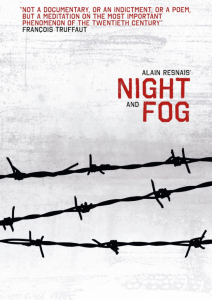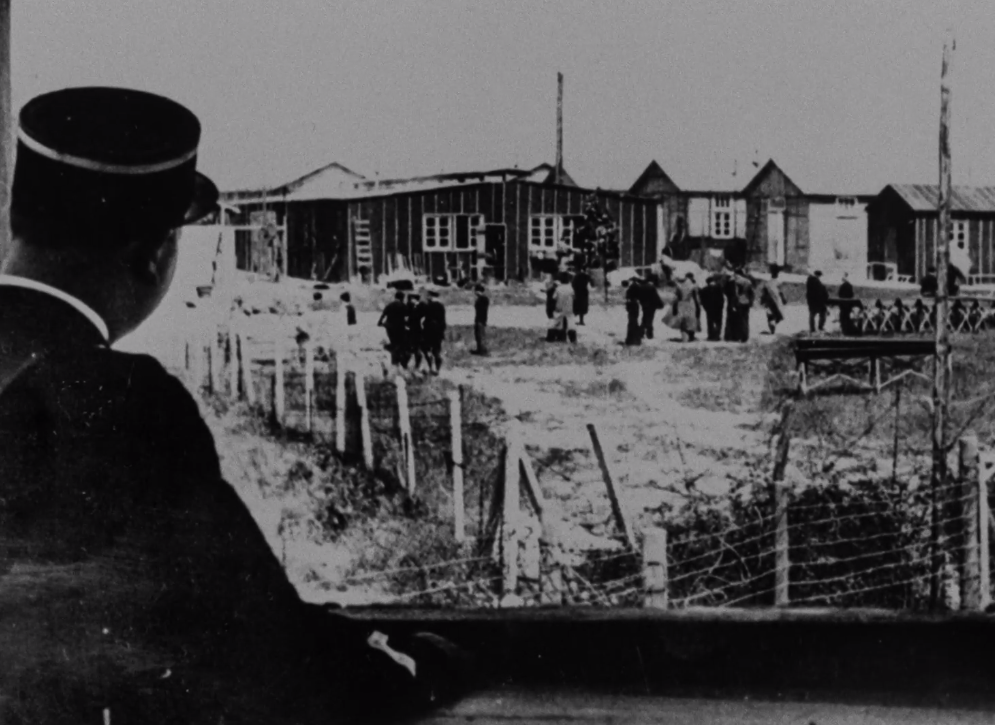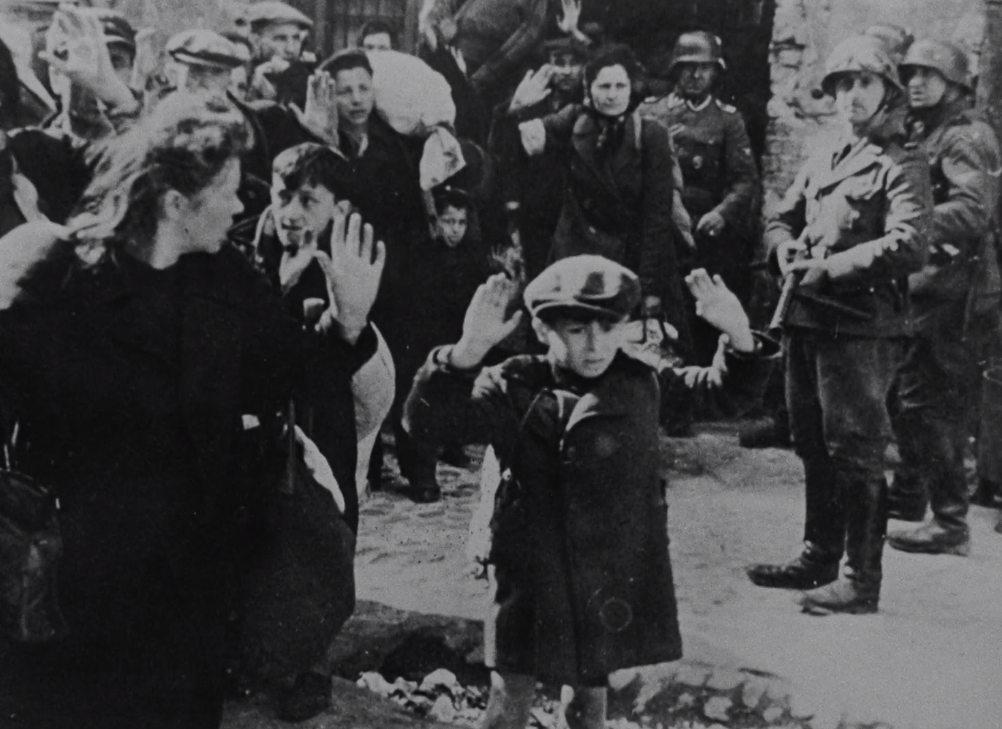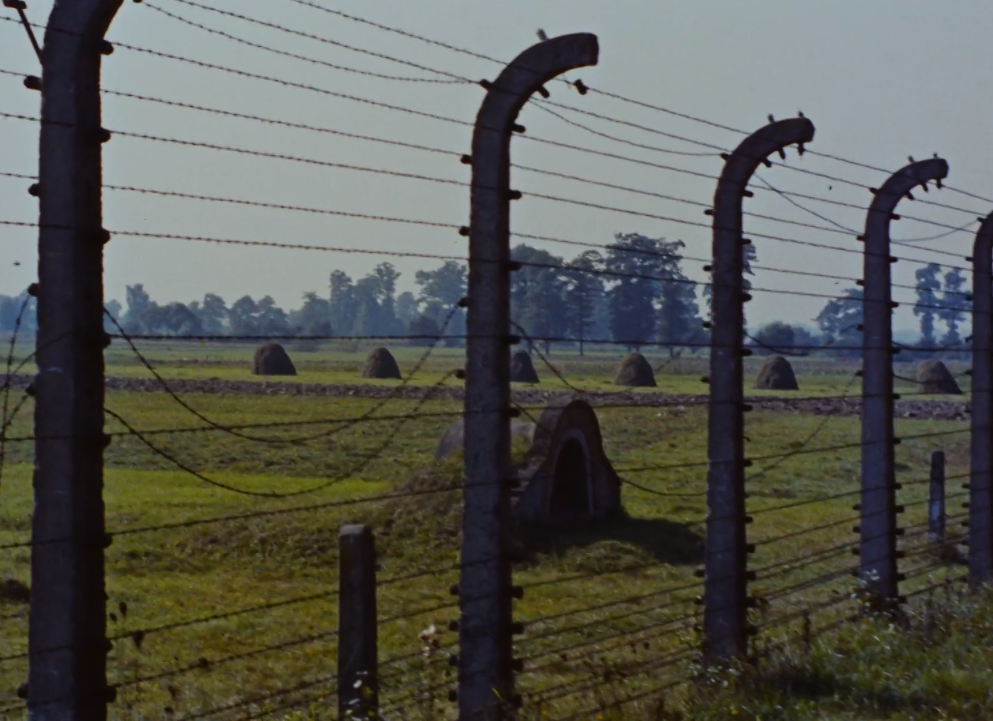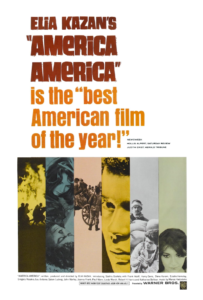|
Genres, Themes, Actors, and Directors:
- Elia Kazan Films
- Immigrants and Immigration
Review:
Elia Kazan wrote and directed this highly personal film (based on his own book) about the obsessive determination of a young man striving toward America. Life for Stavros (Giallelis) and his family and village at the turn of the century in Turkey is rough, hard-scrabble, and marked by ethnic strife and violence:
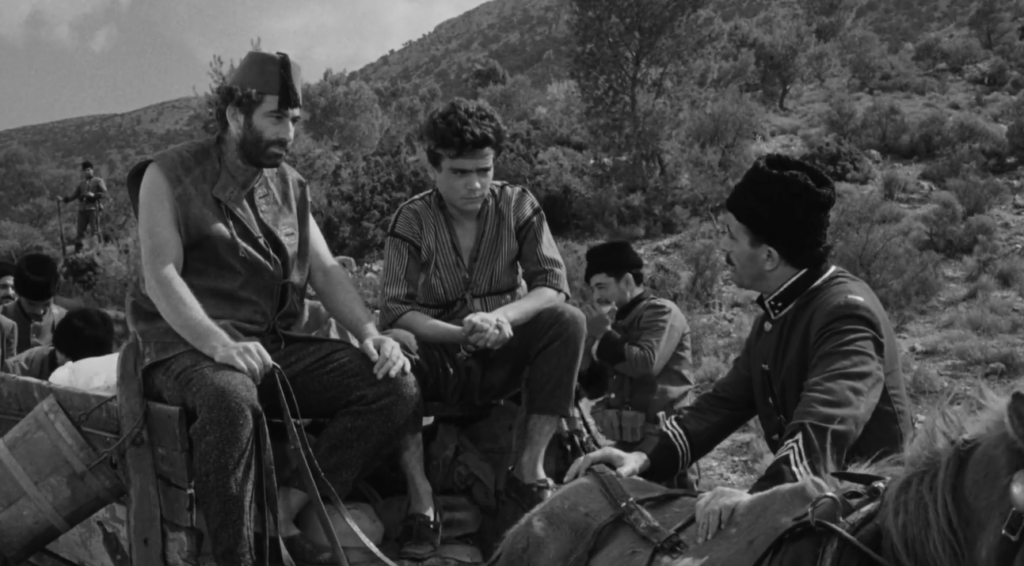
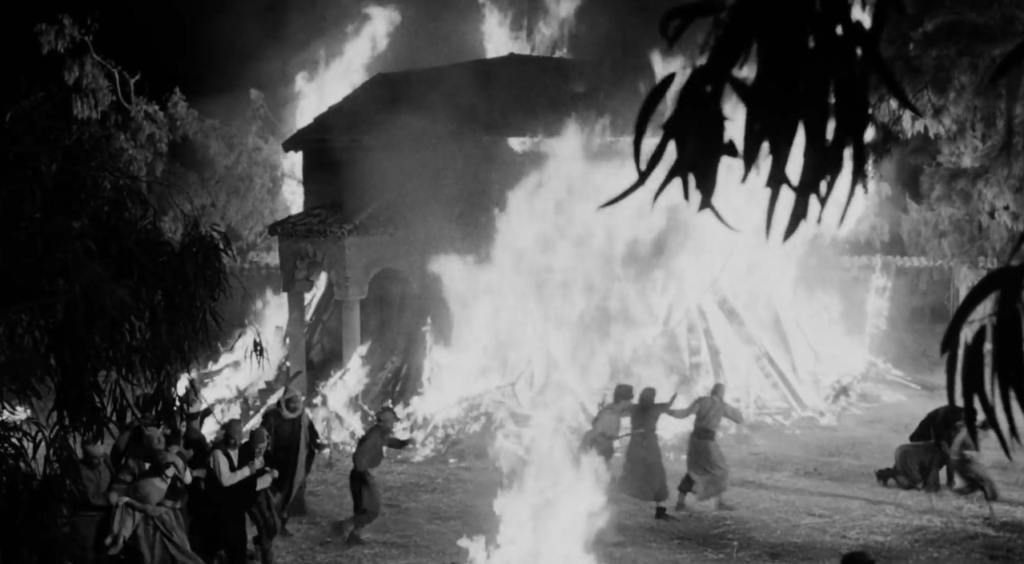
… making it easy to see why an alternative subsistence is so highly valued. Indeed, the initial portions of the film masterfully show the relentless determination needed to strive towards a better existence, with Stavros given all the family’s assets as he sets out to seek his fortunes. We get a strong sense of how urgent Stavros’s desire is to make a path for himself — and how quickly he’s taken advantage of again and again, first by a roving con-artist (Louis Antonio):
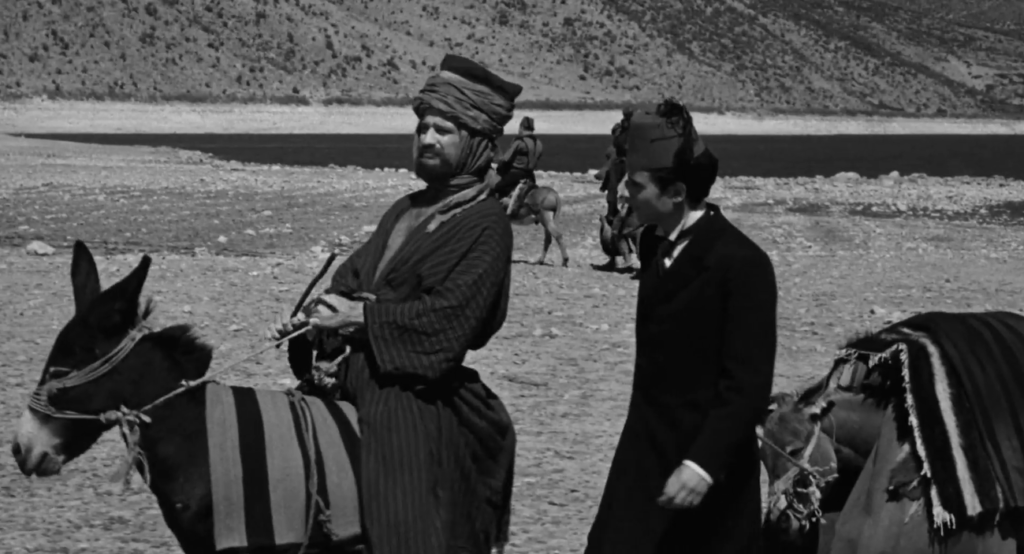
… and later by a prostitute (Joanna Frank) who has few choices herself for survival.
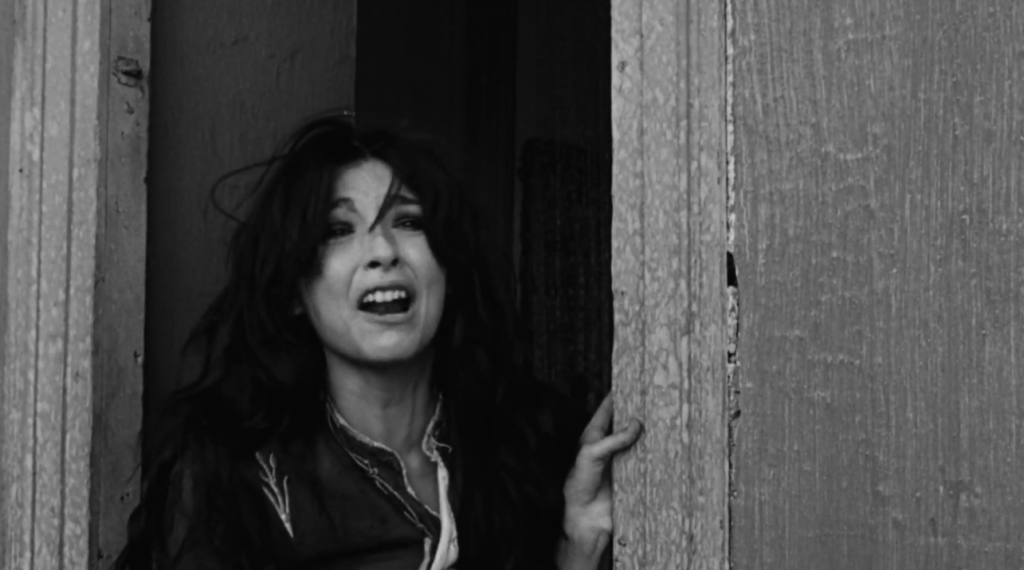
For better and for worse, Kazan used a mostly unprofessional cast to tell his story — and while Giallelis seems reasonably well-cast in the lead role, his lack of range and one dominant expression of stoic determination ultimately becomes wearying over the three-hour run-time.
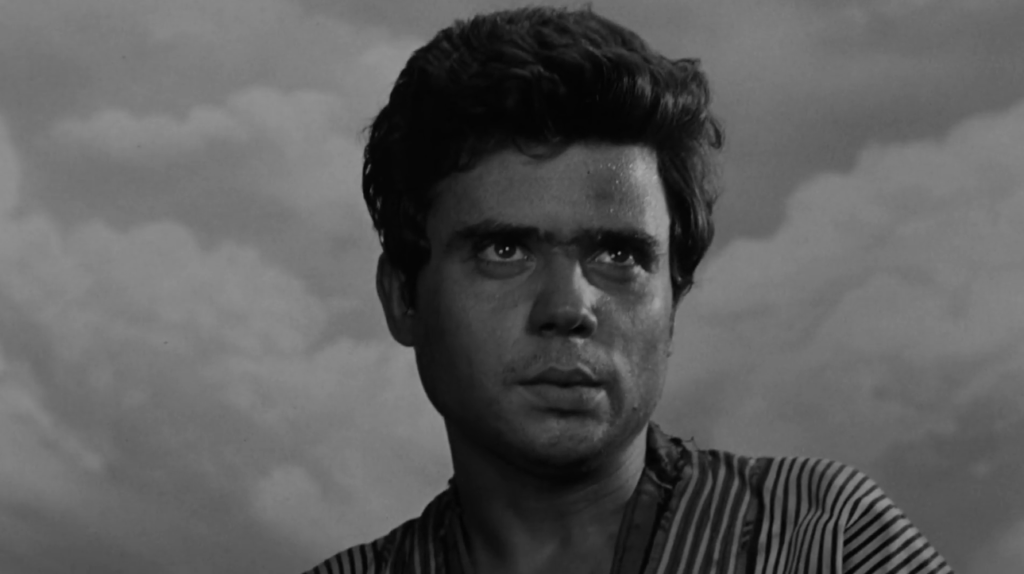
As a notable contrast, a young man he meets on a mountain road early in the film (Gregory Rozakis) — and who plays a pivotal role later on — engenders much more pathos.
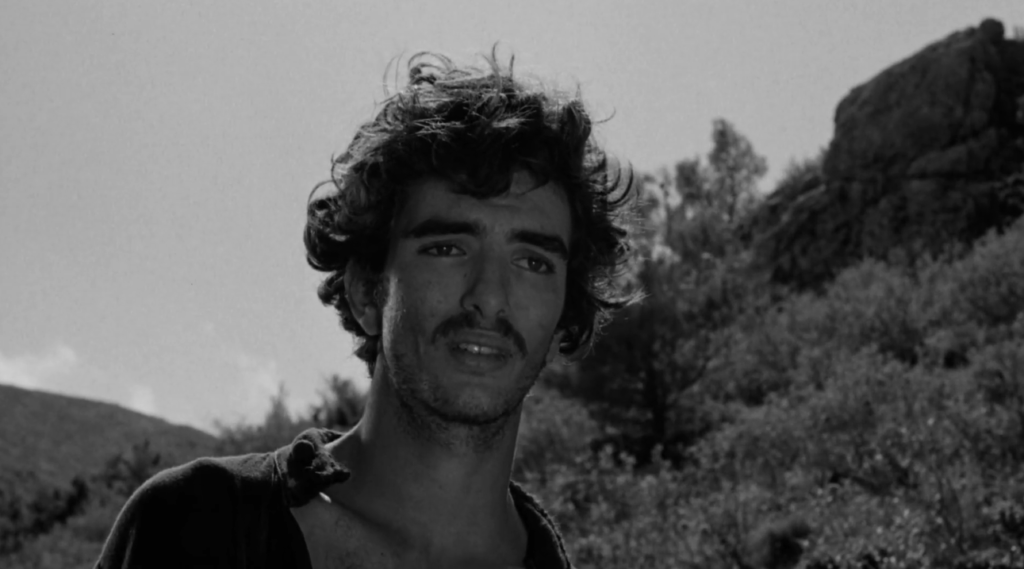
Also distracting is the obvious dubbing throughout the entire film, with Estelle Helmsley’s voice as Grandmother Topouzoglou particularly grating.
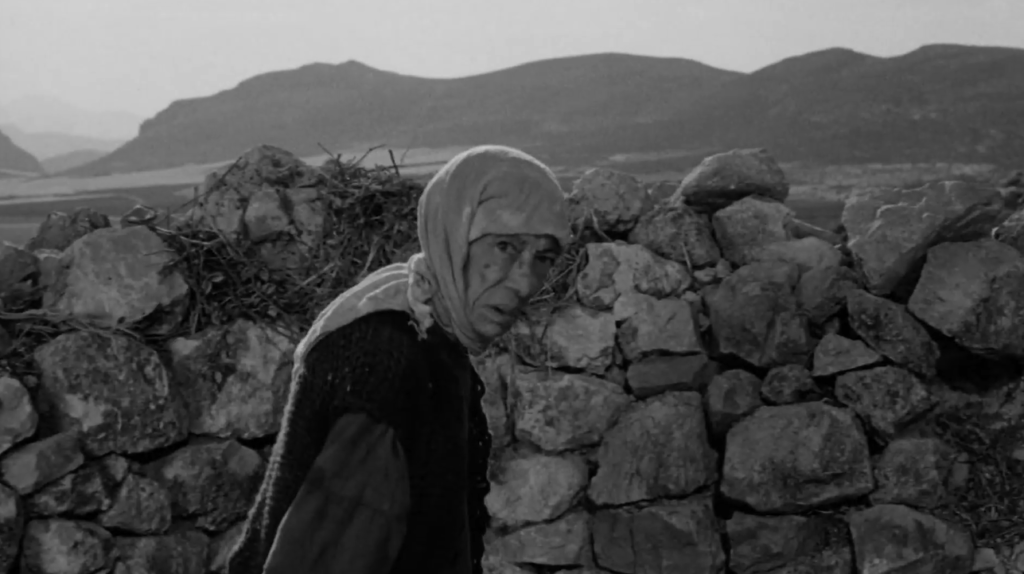
Meanwhile, the entire middle hour or so of this film — in which Stavros (Giallelis) is introduced to the daughter (Joanna Frank) of a wealthy merchant (Paul Mann) who is incredibly eager to marry her off — extends the movie far beyond its ideal length and narrative thrust. While I understand that it’s meant to show the life of comfort, certainty, and male domination Stavros must deliberate upon and possibly reject as he continues his impulse towards America, there isn’t enough dramatic action to warrant the time or emotional energy spent on this section.
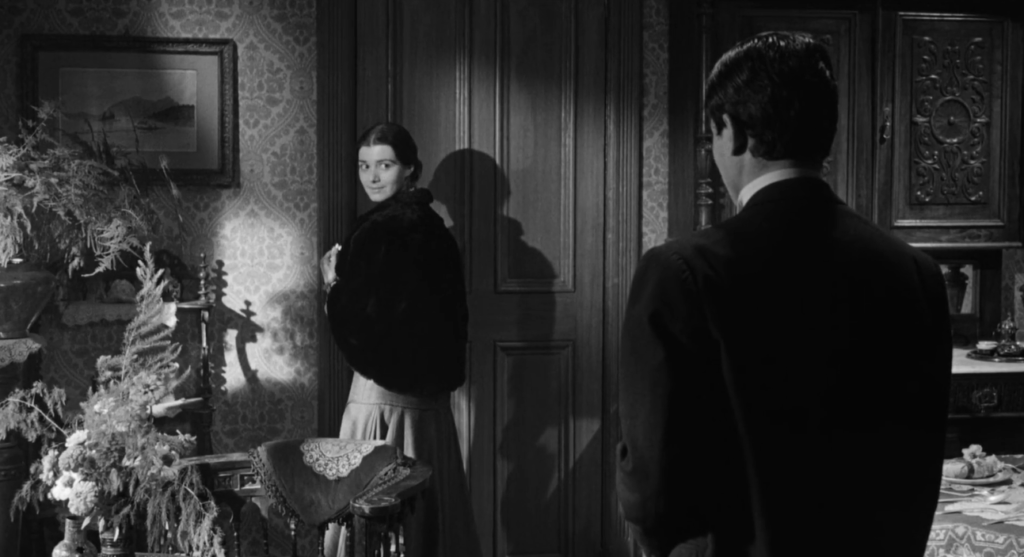
Regardless of its flaws, however, film fanatics will likely want to check this unique film out once simply for its historical relevance.
Notable Performances, Qualities, and Moments:
- Fine period details and sets
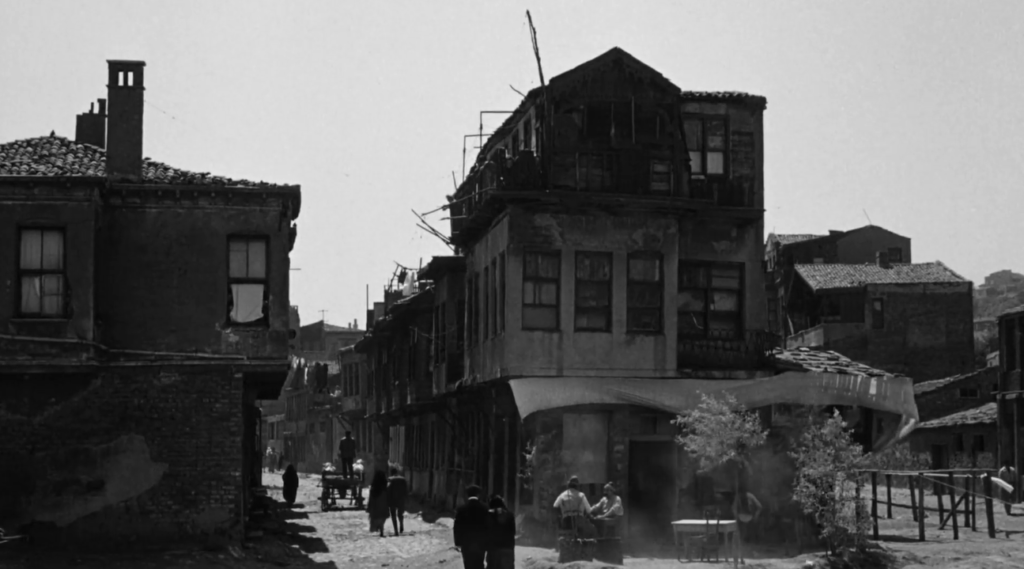
- Good use of location shooting in Turkey and Greece
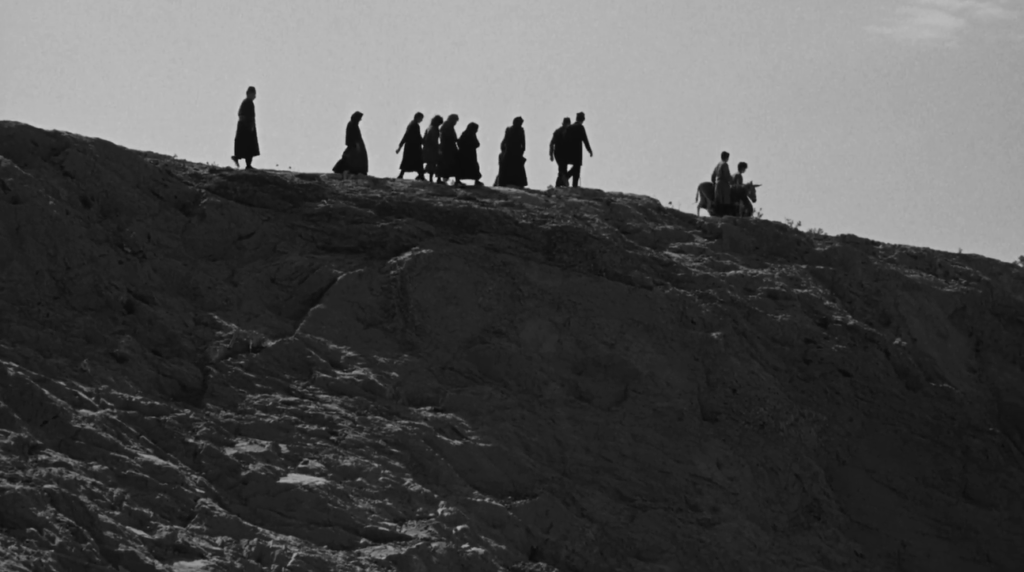
- Haskell Wexler’s cinematography
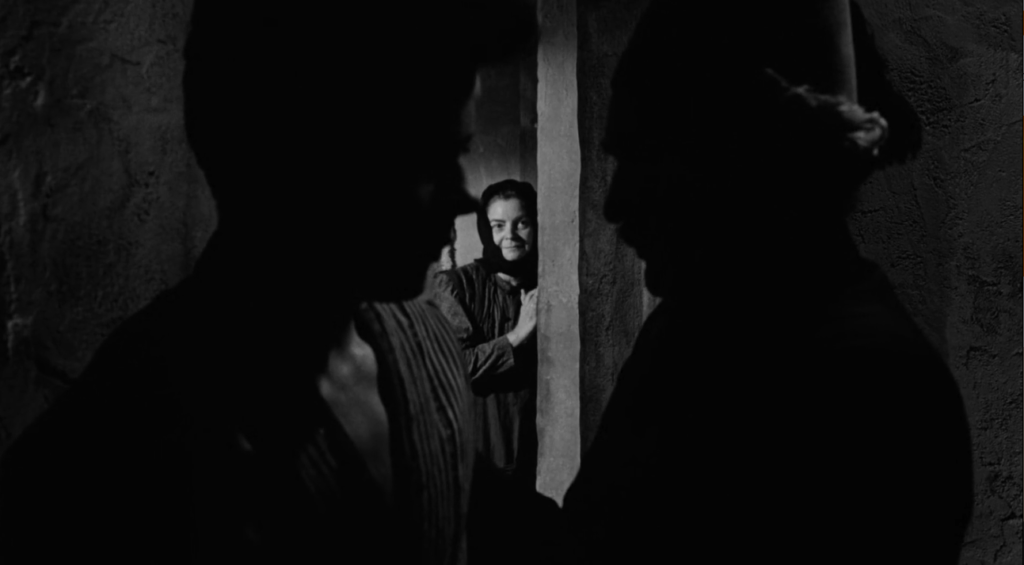
- Manos Hadjidakis’s score
Must See?
No — though I went back and forth on my vote for this one, and it’s certainly worth a look for its historical significance as an intriguing outing by a master director. Selected for preservation by the Library of Congress in 2001 as being “culturally, historically, or aesthetically significant”.
Links:
|
